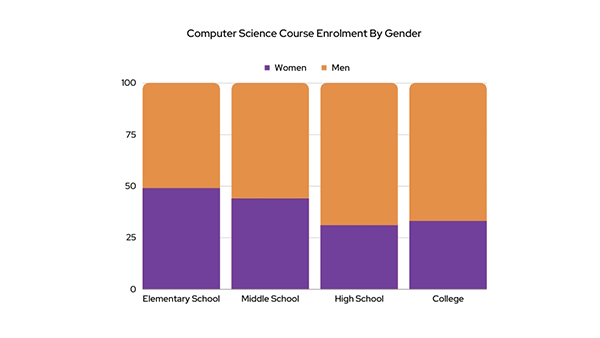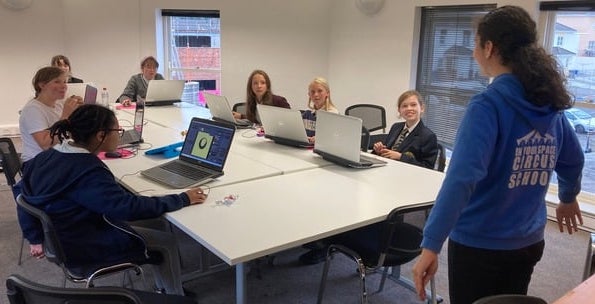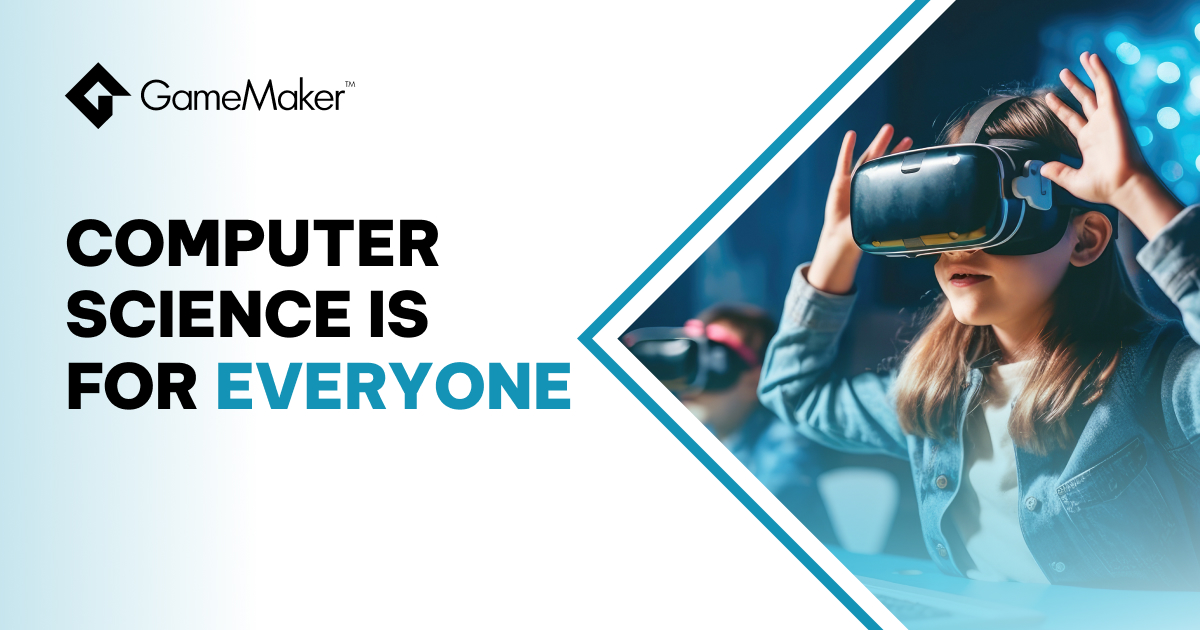A study published in Early Childhood Research Quarterly has left Frank Moody, GameMaker’s Head of Education Relations, pondering some pretty big questions.
In this article, Frank explores the report’s findings, and asks whether the education system is doing enough to rebalance the gender disparity in computer science.
Exploring gender equity in computer science
I recently read an article in Early Childhood Research Quarterly with the catchy title ‘Gender Equity & Motivational Readiness For Computational Thinking In Early Childhood’.
Its conclusions have left me wrestling with a series of important questions.
Their research indicates that introducing children to computational thinking at a young age, when their enthusiasm is at its highest, can counter the biases and social barriers they encounter at middle school.
49% of students enrolled in foundational computer science courses in elementary school are girls, compared to 44% in middle school, 31% in high school, and 33% in college.

‘Girls in this study attended elementary schools in a district where computer science and computational thinking were introduced to students in primary school, in a state whose governor launched an initiative to promote computerA good study always creates more questions. Two for me come front and center.science in primary and secondary education.'
1. Why does girls’ interest in computer science dip as they move through the school system?
The study suggests that girls are more likely to believe ‘that boys are better at STEM subjects’ as they grow older, perhaps influenced by commercials, movies, and adult biases.
I believe media representation has come a long way. I see female characters displaying mastery of computers in the shows I watch and the books I read.
Importantly though, I’m not a girl in grade school; I’m actively seeking media with female role models, and I wouldn't let my middle school daughter watch all the shows I watch.
It didn’t take much work to find evidence that even short-term exposure to unintentionally biased media can set gender stereotypes in early childhood.
The original study also suggests that many teachers doubt their ability to teach computer science. We know that most elementary teachers are women; it follows that if predominant role models for young girls aren’t confident with computers, it can create an implicit bias.

Girls Make Games workshop, 2022
2. What are educators doing to improve the situation?
Organizations like an Hour of Code, Girls Who Code, and CSforAll are on incredible missions to narrow the gender gap. Million Girls Moonshot seeks to engage one million more girls in STEM opportunities over the next five years.
Books like ‘Girls Who Code’ by Reshman Saujani, ‘Sonia’s Digital World’ by Shannon McClintoch Miller, and ‘25 Women Who Built The Video Game Industry’ by Mary Kenney and Salini Perera spotlight role models for young girls.
It will take an intentional effort in schools to provide elementary teachers with the skills and confidence they need to teach computational thinking - not just in computer science, but throughout the curriculum.
More research is required to better understand gender equality in STEM fields; this is where our children's futures lie.
I’m in awe of the organizations, programs, and people that are taking on these challenges.
GameMaker is the industry’s premier 2D game engine, used by thousands of educators every day to teach students how to master the art of game design.
It’s completely free to download, with dozens of written guides and video tutorials to help students bring their video game ideas to life.
Visit the GameMaker Education page for more information and your free learning materials.


